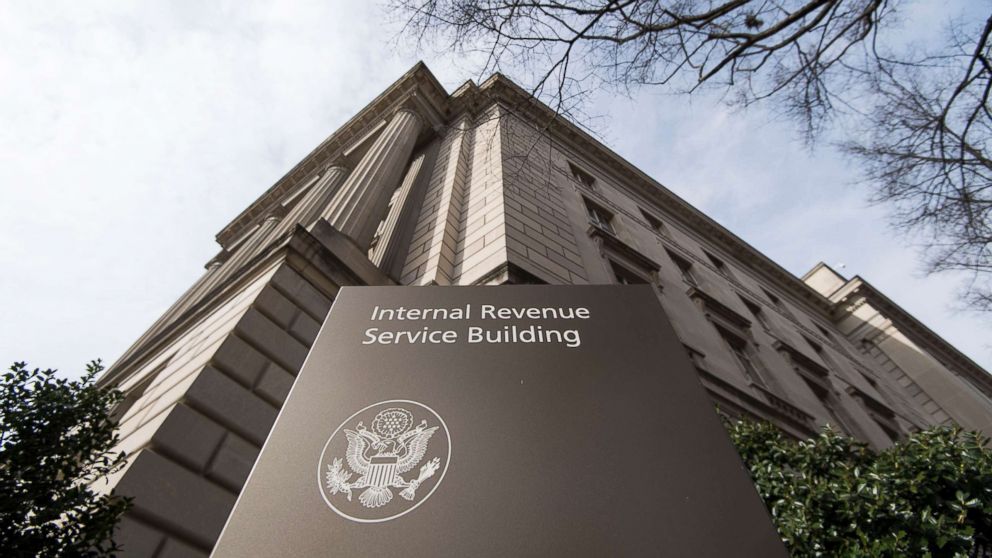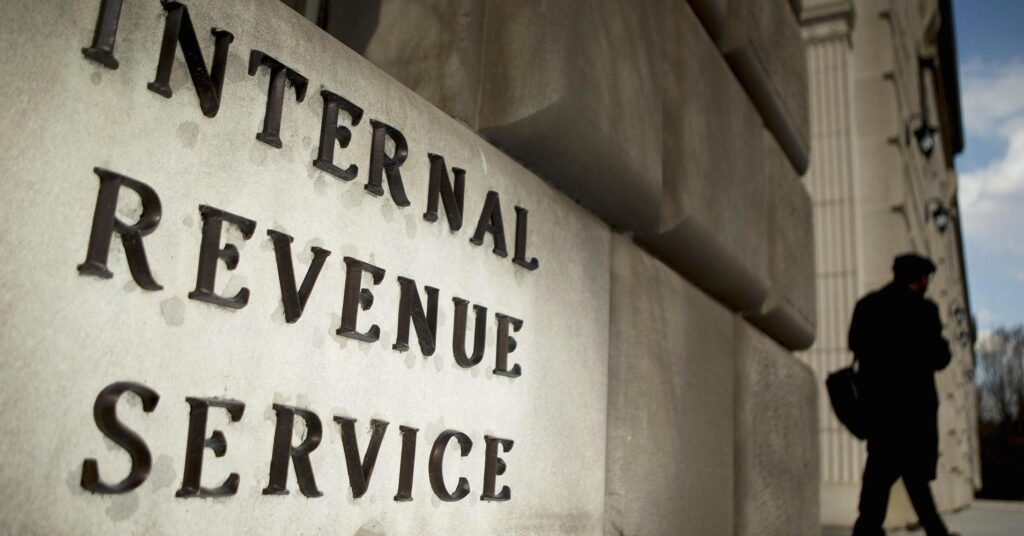The Quantum Resistant Ledger (QRL) is investing significantly in applications and resources that can withstand the imminent threat of quantum computing advancements. Today, the QRL announced a grant to the Quantum Resistance Corporation (QRC) to provide a community security program for other QRL grantees, which are using the distributed network and post-quantum secure blockchain technology to securely build Layer2 applications and protocols.
The QRL is the only blockchain that utilizes a signature scheme approved by the United States National Institute of Science and Technology (NIST) as being post-quantum secure.
The focus of the QRC grant project announced today includes a partnership with threat intelligence firm RedSense, to provide service for other QRL grantees. These services currently include netflow-based security for the distributed QRL environment, a community security program for QRL grant groups, and monitoring and security for all core QRL infrastructure. In time QRC will support the marketing and promotion of projects that result from QRL’s work to grow the community of post-quantum secure developers and the offering of future-proof digital solutions. Early projects likely to receive funding include groups running computer systems for mining and building Layer 2 protocols with the QRL, which can opt into the security services and other support offered by QRC.
“We are on the brink of the greatest shift in cryptography technology since the invention of the computer. Yet as this monumental shift is happening, the world is largely unaware,” said Dr. Iain Wood. “That’s why the QRL community is committed to supporting the top post-quantum secure distributed network and blockchain and empowering our community members to use the QRL technology to advance solutions for post-quantum secure environments.”
Grants are available to those interested in building Layer 2 post-quantum secure applications. The goal of the QRL grant program is to generate projects in support of the QRL ecosystem in the areas of open source tools, education, open source infrastructure, post-quantum research, community, and public goods. The grant program is an opportunity to get involved with a cutting-edge open source project and build on the QRL to power the post-quantum secure smart contract platform. The goal is to grow the nascent post-quantum web3 ecosystem together as a community.
More about the QRL grant program including how to apply is here.
The QRC is the recipient of a $500,000 initial grant investment to encourage the use of the distributed QRL platform, community building, and security.
About the Quantum Resistance Corporation
The QRC are experts in quantum computing and post-quantum security. The QRC works collaboratively to manage the growing risk of post-quantum cryptography and grow the community of post-quantum secure developers. Learn more at https://www.theqrc.com/
About the Quantum Resistant Ledger
The QRL is a distributed blockchain network and future-proof digital currency that utilizes a signature scheme recognized by the United States National Institute of Science and Technology (NIST) as being secure from post-quantum threats. Learn more at https://www.theqrl.org/
About RedSense
RedSense is a threat intelligence firm that offers 360-degree visibility with internet-wide visibility through netflow analysis and human intelligence. RedSense offers clients actionable insights to secure infrastructure from the inside out and stay steps ahead of the adversary. Learn more at https://redsense.com/
Bitcoin (BTC) has been showing signs of recovery in recent days, with bullish sentiment growing among investors and traders. Analysts now predict that the world’s largest cryptocurrency by market capitalization is targeting the $33,000 mark as it sets its sights on a key resistance level.
BTC has been on a roller coaster ride over the past few weeks, with prices fluctuating between lows of $29,000 and highs of $35,000. Despite these ups and downs, the cryptocurrency has managed to hold steady above the $30,000 support level, offering a glimmer of hope to its proponents.
According to several market analysts, Bitcoin’s current trajectory suggests that it could soon flip the $33,000 resistance level, provided it maintains its upward momentum. If successful, this would mark a significant milestone for the digital asset, which has struggled to regain its footing since its all-time high of nearly $65,000 in April 2021.
Experts note that the $33,000 price target is a critical level for BTC, as it lies in close proximity to the 50-day moving average. A successful breach of this resistance could pave the way for further gains, potentially even pushing the cryptocurrency towards the $40,000 mark.
The recent bullish sentiment surrounding Bitcoin can be attributed to a variety of factors, including positive news from major institutions such as Goldman Sachs and JPMorgan. Both financial giants have expressed interest in the digital asset space, with the former launching a Bitcoin futures trading platform and the latter hinting at the possibility of a Bitcoin-focused investment product.
However, it is essential to remain cautious, as the cryptocurrency market is notoriously volatile and prone to sudden fluctuations. While the $33,000 target appears achievable in the short term, investors should be prepared for potential setbacks as they navigate the ever-changing landscape of the digital asset market.
As Bitcoin approaches this critical resistance level, market participants will be keeping a close eye on its performance, eagerly anticipating the next significant price movement. With a growing number of institutions expressing interest in the space, the future of the cryptocurrency market remains as intriguing and unpredictable as ever.
In a shocking turn of events, Bob Lee, the creator of the popular mobile payment service Cash App, was stabbed in San Francisco, California. Authorities have since made an arrest in connection with the crime, offering some relief to the tech community.
The San Francisco Police Department (SFPD) confirmed the arrest in a press release, stating that the suspect was apprehended shortly after the incident took place. While the motive behind the stabbing is yet to be determined, the SFPD is conducting a thorough investigation to ensure that justice is served.
Bob Lee, a well-known figure in the tech industry, is the mastermind behind Cash App, a widely-used mobile payment application that allows users to send and receive money with just a few taps on their smartphones. The app, which has gained immense popularity in recent years, has facilitated millions of transactions and garnered widespread acclaim for its simplicity and user-friendly design.
Following the stabbing, Lee was rushed to a nearby hospital for emergency treatment. The extent of his injuries and his current condition have not been disclosed by the authorities or his family. The tech community has expressed shock and concern for Lee’s well-being, with many offering their thoughts and prayers for a speedy recovery.
The violent incident has raised concerns about the safety of high-profile individuals in the technology industry. While violent crime targeting tech leaders is rare, this attack serves as a reminder that even prominent figures may be at risk.
As the SFPD continues its investigation, the city of San Francisco and the broader tech community await further updates on Lee’s condition and the circumstances surrounding the stabbing. The arrest of the suspect offers a glimmer of hope that justice will be served, but the incident is a stark reminder of the potential dangers faced by those in the public eye.
New tax regulations concerning research and development (R&D) are set to be implemented, potentially putting the financial stability of blockchain startups at risk. The changes, designed to prevent tax fraud, may inadvertently result in cash flow issues for legitimate businesses in the blockchain industry that rely on R&D tax credits for financial support.
The upcoming tax policy adjustments aim to tackle fraudulent claims by implementing a cap on payable tax credits. This cap is set at three times the company’s total PAYE and National Insurance liabilities for the year. While the intentions behind these changes are to curb tax fraud, the policy shift may inadvertently harm startups that invest heavily in R&D, such as those in the blockchain sector.
Many blockchain startups have limited staff and low PAYE and National Insurance contributions due to the nature of their businesses. As a result, the new cap on payable tax credits could severely limit the financial resources available to these startups, potentially leading to cash flow issues and even bankruptcy.
This situation is particularly concerning for the blockchain industry, which has experienced rapid growth in recent years and is recognized as a driving force behind technological innovation. By limiting the R&D tax credits available to blockchain startups, these policy changes could stifle innovation and hinder the development of new and transformative technologies.
Industry experts are urging lawmakers to consider the potential ramifications of these tax policy changes and work towards finding a balanced solution that safeguards both the interests of the government and the growth of the blockchain sector. A failure to address the concerns of blockchain startups may lead to a decline in innovation and a slowdown in the overall development of the industry.
As the implementation of the new R&D tax rules approaches, the potential impact on blockchain startups remains uncertain. The coming months will reveal whether these policy changes will have the unintended consequence of stifering innovation and harming the financial stability of blockchain-based businesses.
A group of Texas lawmakers has put forth an innovative proposal for a state-issued digital currency backed by gold. The proposed currency aims to challenge the dominance of the US dollar and provide an alternative means of payment for residents in the state.
The digital currency plan, outlined in House Bill 4474 and Senate Bill 1859, seeks to establish a digital infrastructure to facilitate transactions using a gold-backed digital currency. The proposal includes the creation of a Texas Bullion Depository, where the state’s gold reserves would be held and used to back the value of the digital currency.
Proponents of the gold-backed digital currency argue that it could offer several benefits, such as providing a stable alternative to the US dollar, which is subject to inflationary pressures. Additionally, the currency could boost economic activity within the state by promoting local transactions and reducing dependency on traditional banking systems.
However, the proposal has also faced criticism, with skeptics raising concerns about the feasibility and legality of a state-issued digital currency. Critics argue that the introduction of such a currency could conflict with the US Constitution, which grants the federal government the exclusive right to issue currency.
Furthermore, some experts have questioned the practicality of implementing a gold-backed digital currency, citing potential challenges related to the management and security of gold reserves. They also point out the volatility of gold prices and the risk that a fluctuating gold market could pose to the stability of the proposed digital currency.
Despite these concerns, the Texas gold-backed digital currency proposal marks an intriguing development in the rapidly evolving world of digital currencies. The proposal has reignited debates about the role of digital currencies in the global financial landscape and the potential for state-issued digital currencies to challenge the hegemony of traditional fiat currencies.
As the proposal makes its way through the legislative process, its outcome could have significant implications for the future of digital currencies, state sovereignty, and the role of gold in the global monetary system.
In a recent security breach, decentralized exchange platform SushiSwap has suffered a significant loss of $3.3 million due to an approval bug exploit. The vulnerability in the platform’s smart contract enabled attackers to drain funds from users, raising questions about SushiSwap’s security measures and the overall safety of decentralized finance (DeFi) platforms.
The exploit was first discovered by blockchain security firm PeckShield, which alerted SushiSwap to the issue. The platform then issued a warning to its users, advising them to revoke their token approvals on the affected smart contract. However, by the time the warning had been issued, the attackers had already managed to siphon $3.3 million from the platform.
The vulnerability was traced back to the “addCollateral()” function within SushiSwap’s smart contract. This function allowed attackers to manipulate the platform’s accounting system and withdraw more collateral than they had initially deposited. The attackers exploited this bug to repeatedly execute transactions and drain users’ funds.
SushiSwap has since implemented a fix to address the vulnerability, but the incident has raised concerns about the security of DeFi platforms and the potential risks associated with them. The rapid growth of the DeFi sector has led to an increasing number of platforms emerging on the market, some of which may have overlooked crucial security measures in the race to launch their products.
As a result of this incident, industry experts are calling for greater scrutiny and regulation within the DeFi sector to ensure the safety of users’ funds. The SushiSwap exploit serves as a reminder of the risks associated with decentralized finance and the need for stringent security measures to protect users from potential threats.
The SushiSwap team has assured users that it is taking the necessary steps to prevent similar incidents from occurring in the future. It remains to be seen how this event will impact the platform’s reputation and the confidence of its users, as well as the wider DeFi industry.
Polygon has ascended the ranks to become the second-largest gaming blockchain, thanks to a remarkable surge in user activity during March. The platform’s increasing popularity among gamers and developers highlights the expanding role of blockchain technology in the gaming industry.
The Ethereum scaling solution has experienced rapid growth in recent months, with numerous game developers and players gravitating toward Polygon for its lower transaction costs and faster processing times compared to the Ethereum mainnet. As the gaming sector continues to embrace blockchain technology, Polygon’s user-friendly infrastructure has made it an attractive choice for many.
In March, Polygon saw a considerable uptick in activity, propelling it to second place among gaming blockchains. This surge in user engagement is attributed to various factors, including the platform’s robust developer community and the increasing number of games and applications being built on the network.
Additionally, Polygon’s partnership with several high-profile gaming projects has contributed to its growing prominence in the blockchain gaming space. These collaborations include projects such as Aavegotchi, Decentraland, and The Sandbox, which have all experienced significant growth in user activity and adoption.
The rise of Polygon reflects the broader trend of blockchain technology’s integration into the gaming industry. With gamers increasingly seeking decentralized and transparent platforms, blockchain-based solutions like Polygon are poised to play a crucial role in shaping the future of gaming.
As Polygon continues its ascent, it is expected that more game developers and users will join the platform, further solidifying its position in the blockchain gaming ecosystem. The platform’s success serves as a testament to the potential of blockchain technology in revolutionizing the gaming industry and enhancing the overall user experience.
A recent study has exposed a concerning trend among cryptocurrency investors, as it found that a staggering 99.5% of them did not pay taxes on their digital asset gains in 2022. The study highlights the ongoing challenges faced by tax authorities and regulators in overseeing the rapidly growing crypto market.
The research, conducted by an independent organization, examined the tax compliance of cryptocurrency investors across various jurisdictions. It discovered that a vast majority of them failed to report their digital asset-related income and capital gains to the respective tax authorities, leading to significant revenue losses for governments worldwide.
The study attributes this lack of compliance to multiple factors, including the inherent anonymity of cryptocurrencies, which makes it challenging for tax authorities to track transactions and identify individuals involved. Additionally, the absence of a standardized global approach to cryptocurrency taxation, along with the complexity of tax regulations in some jurisdictions, has further contributed to the issue.
In response to the findings, governments and regulators are expected to intensify their efforts to close the existing loopholes and improve tax compliance in the crypto space. This could involve implementing stricter reporting requirements for exchanges and other crypto-related businesses, as well as adopting advanced technological solutions for monitoring digital asset transactions.
Some countries have already taken measures to address the tax evasion issue. For example, the United States Internal Revenue Service (IRS) has increased its efforts to ensure crypto investors comply with tax regulations by sending out warning letters and implementing more stringent reporting requirements.
The study’s revelations underscore the need for a coordinated global approach to tackle tax evasion in the rapidly expanding cryptocurrency market. As the industry continues to grow, it is crucial for governments and regulators to develop effective strategies to ensure that digital asset gains are accurately reported and taxed.
With a year-to-date increase of 70%, Bitcoin seems to have moved past the bear market phase, according to SkyBridge Capital founder Anthony Scaramucci. The former White House Communications Director is a prominent figure in the crypto space and has been closely monitoring the market. He expressed his thoughts in a recent interview, stating that the cryptocurrency has regained its upward momentum.
Scaramucci highlighted that institutional investors have been showing increased interest in Bitcoin, which he believes is a significant factor in the digital asset’s recent price surge. Large institutions have been allocating a portion of their portfolios to cryptocurrencies, viewing them as an essential hedge against inflation and fiat currency fluctuations.
Additionally, the SkyBridge Capital founder emphasized the role of regulatory clarity in Bitcoin’s growth, citing it as a key factor in driving its adoption. Despite some initial fears and uncertainties, regulators worldwide have been working to establish clear guidelines for the operation and use of cryptocurrencies. This increased clarity has provided investors with a sense of security, fueling Bitcoin’s rise.
Scaramucci also pointed out that Bitcoin’s network effect is growing, meaning that as more people adopt the digital asset, its value and utility increase. This network effect, coupled with growing institutional interest, has contributed to the cryptocurrency’s strong performance.
In the interview, Scaramucci advised investors to allocate a small percentage of their portfolio to Bitcoin, considering it a valuable long-term investment. He believes that the current upward trend will continue, and the bear market is now behind us.
As Bitcoin continues to gain traction among institutional investors and the general public, it appears that the digital asset is well on its way to solidifying its position in the global financial landscape. The recent price surge, increased adoption, and regulatory clarity all point to a bright future for Bitcoin and the broader crypto market.
Tether (USDT), the world’s largest stablecoin, has hit a significant milestone, with its supply reaching $80 billion for the first time since May 2022. As the demand for stablecoins continues to grow, Tether remains the dominant player, while some of its competitors face challenges.
Stablecoins are digital currencies pegged to a stable asset, such as the US dollar, and serve as a popular means of transferring value and hedging against volatility in the cryptocurrency market. Tether, in particular, has become a critical component in the global crypto ecosystem, offering liquidity and acting as a bridge between various platforms and exchanges.
While Tether’s growth has been remarkable, the same cannot be said for some of its rivals in the stablecoin market. The recent decline in the total market capitalization of cryptocurrencies has exposed vulnerabilities in other stablecoins, causing some to stumble. This contrast highlights Tether’s resilience and the ongoing trust placed in it by the broader crypto community.
Some experts argue that Tether’s success can be attributed to its first-mover advantage and the strong partnerships it has established with leading cryptocurrency exchanges. Moreover, its transparency initiatives, such as regular attestations and audits, have bolstered confidence in the stablecoin.
However, Tether has not been without controversy. The company has faced regulatory scrutiny in the past, with authorities raising concerns about the transparency of its reserves and operations. In response, Tether has taken steps to address these concerns and has continued to maintain its dominance in the stablecoin market.
In conclusion, Tether’s $80 billion milestone is a testament to its continued prominence in the ever-evolving world of digital currencies. As the stablecoin market grows, Tether’s ability to maintain its position as the leading player will depend on its ongoing commitment to transparency and its ability to adapt to new regulatory and market conditions. In the meantime, its rivals will need to step up their game if they hope to challenge Tether’s dominance.












